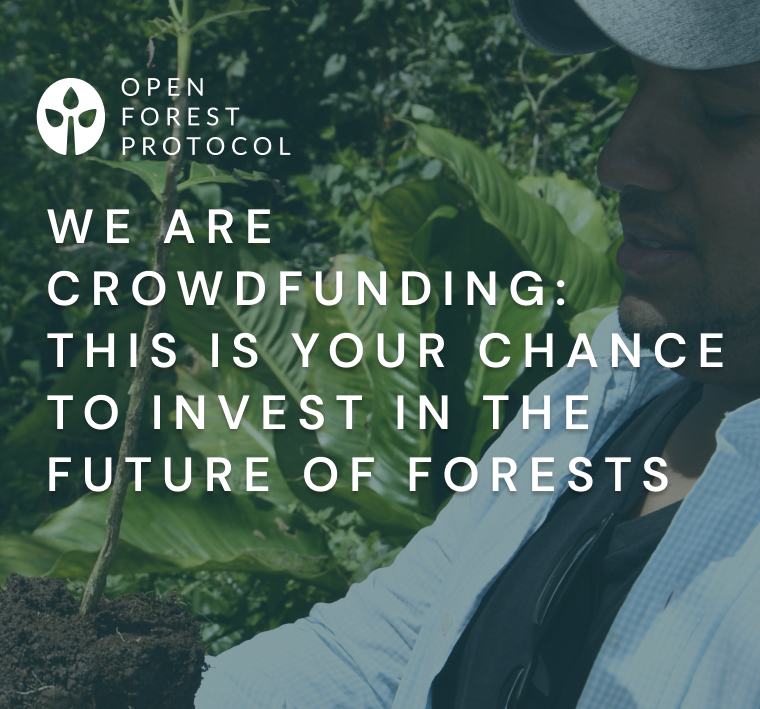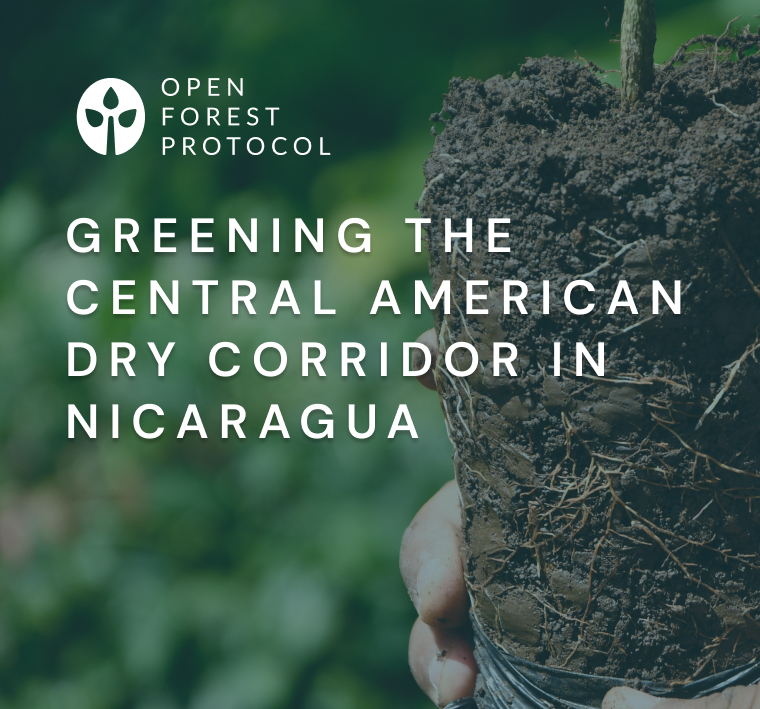OFP does the XV World Forest Congress
Highlights, Takeaways, and Tree-via (Tree Trivia)
Just over a month after World Forestry Day, the most high-profile summit for forest actors, the World Forestry Congress, took place in Seoul, Republic of Korea from the 2nd to the 6th of May. Actors in the forestry sector, from reforestation NGOs to governments to private organizations, honored the 15th iteration of the 96-year-old event with massive presence and actionable exchanges that materialized into the Seoul Forest Declaration, the Youth Call for Action, and the Ministerial Call on Sustainable Wood.
Tree-via:
The very first World Forestry Congress was held in Rome in 1926.
Of course, the Open Forest Protocol was present, with the G12 booth drawing much attention for more than just its fantastic and user-friendly design. On-site representing OFP were Business Developer and Head of Validator Onboarding Rado Dragov, Community Development Lead Rim, and Forest Project Coordinator Joe Ferris (pictured below). At the Congress, they connected with a multitude of groups, governments, indigenous leaders, and representatives of prominent reforestation NGOs.

The OFP team sought to meet and connect with project operators and validators from around the world and gauge the consensus of major global actors around carbon financing, as well as forest Measurement, Reporting, and Verification (MRV) — two topics central to OFP’s raison d’etre.
The event theme was already a win for OFP
The theme of the XV World Forest Congress was an auspicious start for OFP’s focus on Nature-based Solutions (NbS) as the most practical approach to climate change.
Tree-via:
The theme of the XV World Forest Congress was:
“Building a green, healthy, and resilient future with forests.”
The Congress discussions were sectioned into six broad subthemes centered around the vital role of forests in global sustainable development and the 2030 agenda:
- Sub-theme 1 — Turning the tide: reversing deforestation and forest degradation
- Sub-theme 2 — Nature-based solutions for climate change adaptation and mitigation and biodiversity conservation
- Sub-theme 3 — The green pathway to growth and sustainability
- Sub-theme 4 — Forests and human health: revisiting the connections
- Sub-theme 5 — Managing and communicating forest information, data, and knowledge
- Sub-theme 6 — Forests without boundaries: enhancing management and cooperation
They also identified critical actions and recommendations to enhance this role. Highlighting that we are navigating the aftermath of a pandemic, the Congress also keyed in on the acute pertinence of forests environmentally, socially, and economically in a Post-COVID 19 world.
Governments
Equipped with a QR code to an OFP information hub, it was easy to spot our user-friendly and tech-ed-out booth. The team got a plethora of attention, including positive contacts with government representatives and ministers. Representatives from Fiji, Korea, and Nepal made a pit stop, as well as representatives of the Cameroonian government, Kenya, and Ivory Coast.
Our visitors were not all work and no play, as a couple of students came over. The team had fun sharing the OFP ins and outs, and stickers, and hearing their thoughts on climate change.

OFP has 12 Project Operators and 1 validator in Kenya, and recently signed a partnership with the government of Ivory Coast to restore 5,067 hectares of forest in the Gorké forest region in Abidjan.
Tree-via:
Cecile Ndjebet from Cameroon and the African Women’s Network for Community Management of Forests was this year’s Wangari Maathai Forest Champions Award winner for her outstanding work mobilizing African women to plant trees.
Exposure & Expanding the Project Operator and Validators Network
We were thrilled to run into some existing OFP Project Operators and Validators of the OFP network, including Green Balam and Bondy Earth.
Being able to present and discuss what OFP is all about with new faces and entrepreneurs from reforestation NGOs to private organizations allowed us to continue the expansion of our global community. The conference was the ideal hub to meet a variety of potential Project Operators, Validators, and Contributors.
Among the attention and connections, OFP also caught the eye of Korean media outlet Greenium, a climate-conscious online news hub focused on zero waste efforts, circular economy, and green tech innovators. They published their coverage of OFP in their roundup of the event.
OFP is in the eye of the global discourse and is ahead of the curve — Nature-based Solutions as the way forward
Subtheme #2 of the Congress was on Nature-based Solutions (NbS) for climate change adaptation and biodiversity conservation. 2022 is highlighted as a key year for the acceleration and delivery of forest pledges, and NbS are the most viable approach to adopt because of their inclusivity, cheaper economic and environmental cost, high sustainability, and high integrability within existing or future systems. OFP’s avant-garde NbS infrastructure will support and evolve alongside the world’s ever-changing technological and political landscape.
The strong link between NbS and the experience and success of indigenous people and local communities in conserving and maintaining forests was emphasized during the first session of the NbS discussion. OFP has been a step ahead and long integrated this approach by building on the NEAR blockchain to create a decentralized and transparent global network of Project Operators and Validators.
OFP’s Transparent MRV is pioneering: Open-source reporting of forest data is crucial to global synchrony
The 5th Subtheme was on managing and communicating forest information, data and knowledge. One of the biggest unanimity amongst actors was the importance and a need for a more open and transparent reporting of forest data and how it plays into the credibility and consistency of data, which are vital to carbon financing opportunities for projects and initiatives.
OFP’s Measurement, Reporting, and Verification (MRV) platform built on the NEAR blockchain stands out as both a present-day and future-proof innovative solution that ensures transparency through immutability, decentralization and allowing global access through the open-source nature of its recorded data.
General impressions and takeaways
Financing and decisive action were heavily discussed as two lacunae in the fight against climate change. As the Congress drew to a close, efficient and streamlined measures to navigate these shortcomings were set as priority. As a highly scalable, trustless, and cost-effective actor, OFP is the perfect tool to drive home action and close these gaps.
The emphasis on the need to build capacity around Nature-based Solutions and the necessity of credible and scalable data acquisition and validation was clear. Also highlighted was the significance of the role played by local communities and indigenous people in the success of reforestation and conservation efforts — they are, after all, the ones who know the land best.
After the five-day event, the team left Seoul more convinced and confident than ever of OFP’s vision and the relevance of its solution in the climate change landscape.

Get the freshest news
Sign up with your email address to receive fresh news and updates.





.png)



